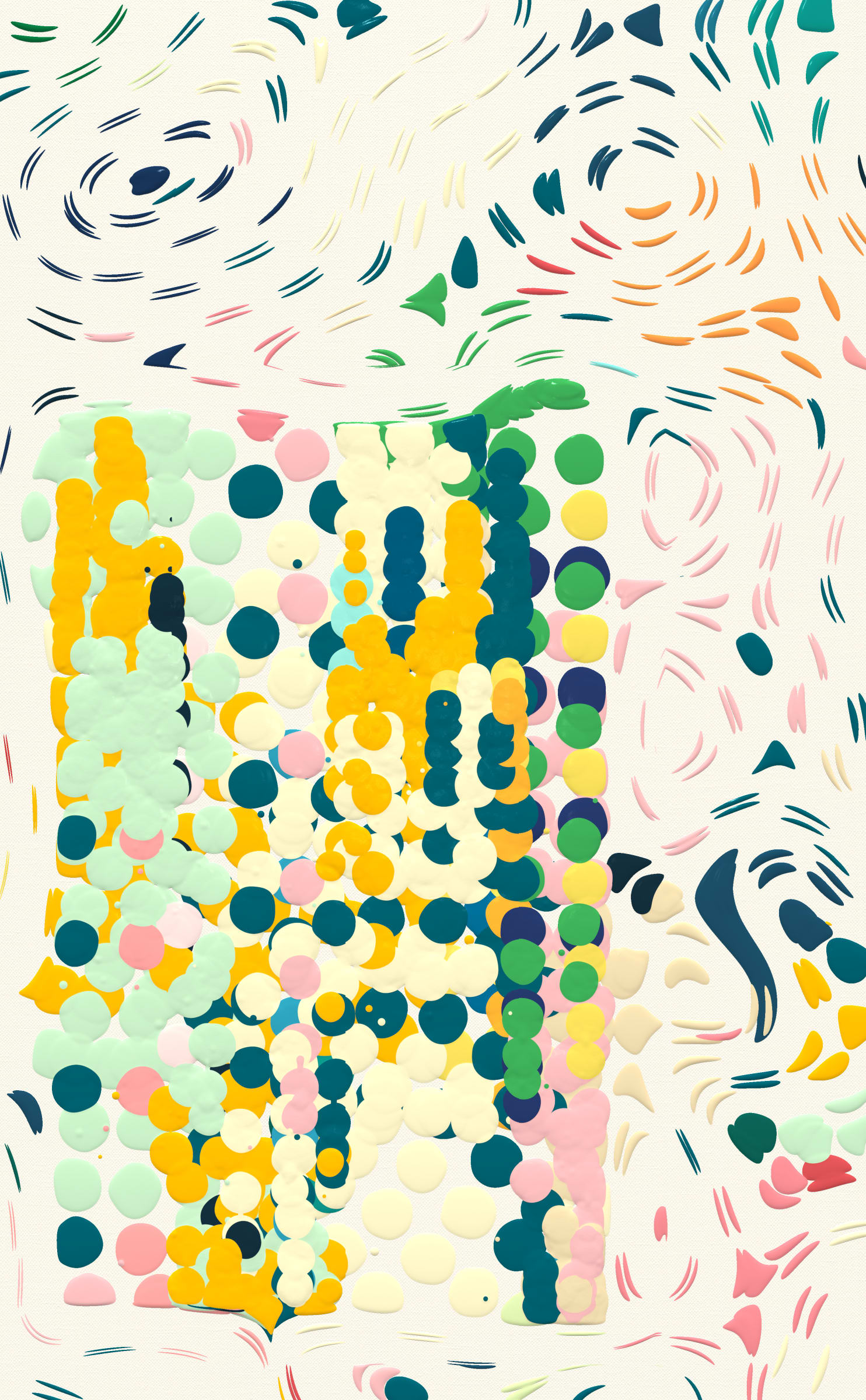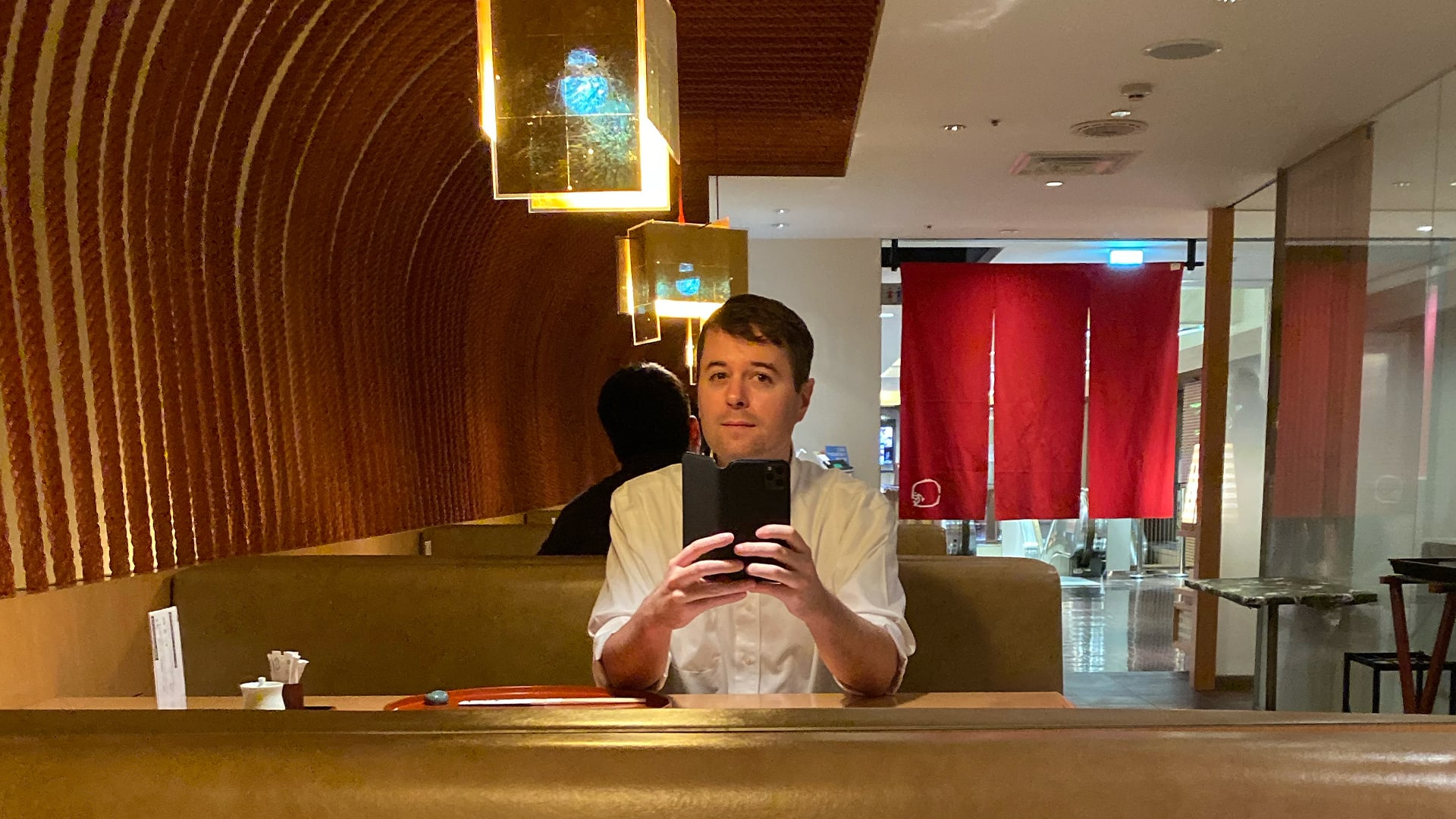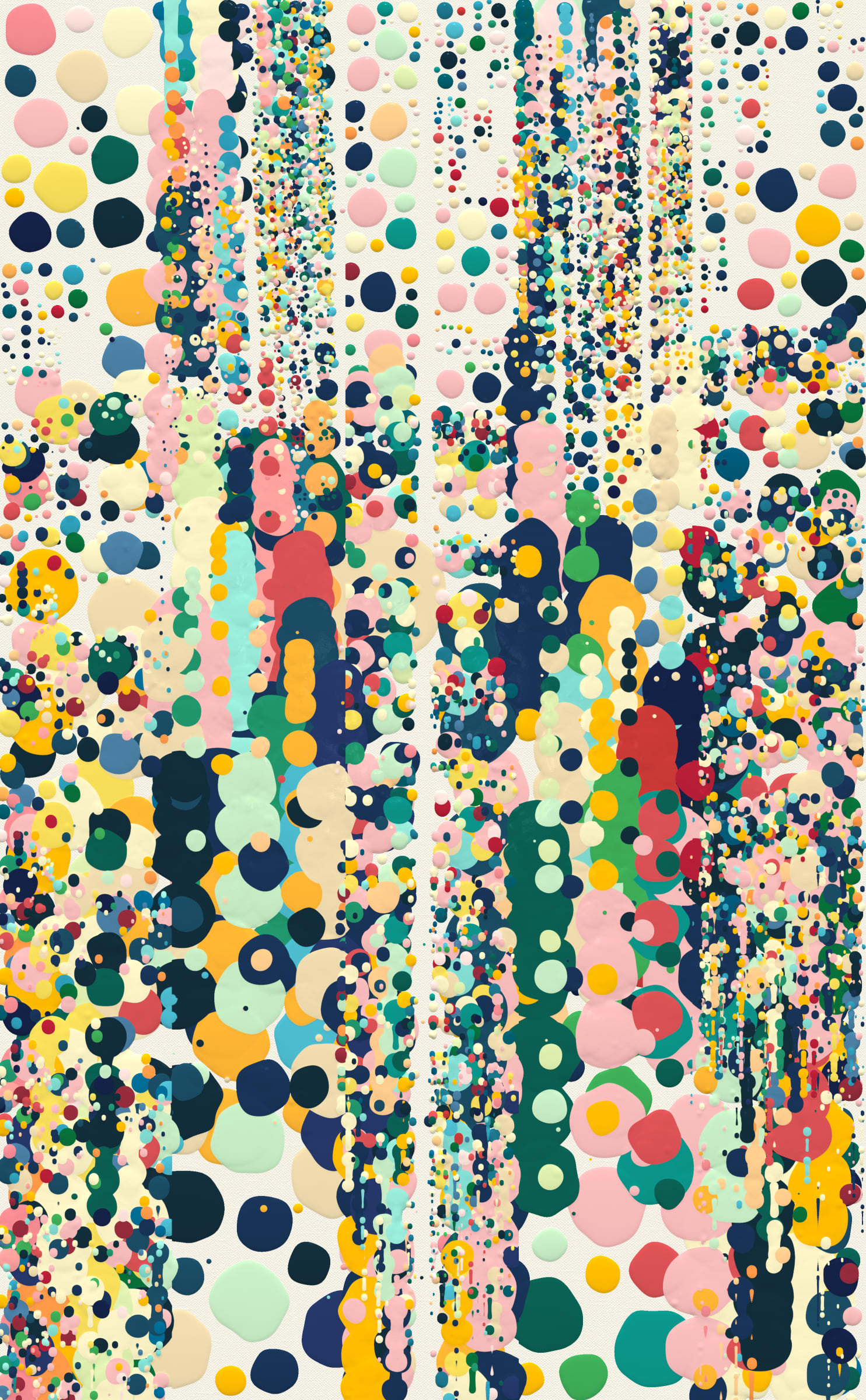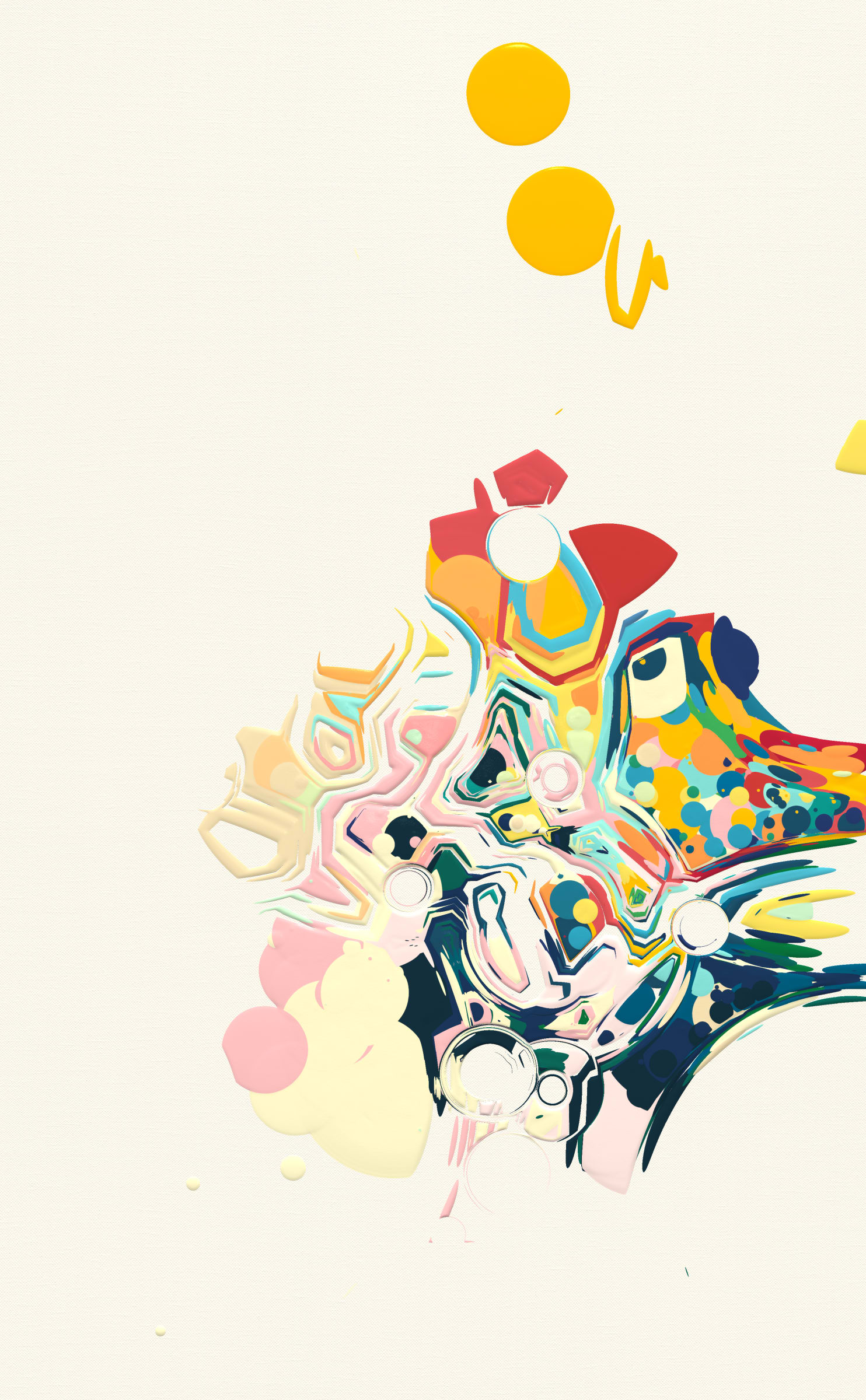Proscenium is a generative geometry that starts as the snapshot of a world and ends as paint on canvas.
It defines a set of instructions to produce a self-painting landscape where the laws of physics are reimagined; paint can bounce like rubber and the land itself is a canvas that collapses from three dimensions down to two.
Proscenium's world is adorned with stylized structures, above which formations of paint drops are suspended in the air. As gravity takes hold, the paint falls and bounces across the land. After all the drops have settled or fallen off the canvas, the terrain is flattened, all except for the paint left behind by each bounce. This technique, leaving marks in three dimensions and then flattening down to two, creates a rich variety of shapes that reflect the character of the now invisible world.
For many, Proscenium will begin as a stretched canvas print on a wall, perhaps momentarily mistaken for a reproduction of a painting. The myriad hints scattered like breadcrumbs throughout the collection's outputs will guide curious observers down a rabbit hole. It leads through experiencing the live render and ultimately towards a new appreciation of what's possible with digital art and software as a most infinite medium.
It's there that Proscenium finds itself: not quite a pure physical simulacrum, nor a pure digital artifact of computers as we know them. It's an enactment of an idea made possible only through software as a multiplier and accelerant on thought itself - the human imagination - and its boundless possibilities.
In that way, capturing the essence of paint dripped on canvas belies the work's true nature, painting over the fourth wall. Also known as the proscenium, the fourth wall is the physical space on a theater's stage between the curtain and the audience. The making of the art, the code, and the simulated world with its laws of physics that produce each piece are all obscured by the output image and its opaque printed copies.
Live Render Controls and Settings
Press 1 to reset the positions of the Camera and Artwork.
Fixed Camera (Default)
- Click and drag to rotate Artwork
- Scroll to zoom Camera
First Person Camera (Press 2 to Toggle)
- W, A, S, D to move Camera in any direction
- V to move Camera down towards the Artwork
- Space to move Camera up away from the Artwork
- Click and drag to rotate Camera
Render
- P to toggle Pause
- 1 to reset Camera and Artwork Position
- 2 to toggle Camera Mode between Fixed and First Person
- 3 to render from Camera Position (!)
- 4 to render with Flash Photography (!)
- 5 to render without Canvas Texture (!)
- 6 to render without All Textures (!)
- 7 to render faster without Live View (!)
- 8 to render sharpest with 8x Supersample (!!)
- 9 to render for Print (!!)
- 0 to reset to Defaults (!)
(!) Restarts render from the beginning, press again to toggle off
(!!) Same, plus these are very large tiled renders, with no Live View, and can take an hour or so
RELEASE DATE
14 Feb 2024
LIBRARY
js@na
DISPLAY NOTES
Stretched canvas prints signed by the artist will be made available for purchase (reserved for collectors only). The Live Render is optimized to perform well on desktop and mobile browsers that support webgl2. Throughout the animation, the height of each terrain is significantly scaled down for a better viewing experience. 3D files of the worlds and paintings will be made available according to demand and as time permits after release.
CREATIVE CREDITS
The webgl engine was made from scratch for Proscenium. All code is originally authored by remnynt, and will be open sourced as time permits.
RELEASE DETAILS
400 works released with Exponential Dutch auction with settlement on 14 Feb 2024
CHARITABLE GIVING
10% of proceeds will be donated via Endaoment to charities with a focus towards environmental direct action, such as reforestation and ocean clean-up.
ARTIST SITE
https://vibes.art...
PROJECT ID
0x99a9b7c1116f9ceeb1652de04d5969cce509b069-486
CONTRACT
Etherscan
LICENSE
CC BY-NC 4.0

ABOUT THE ARTIST
Jimmy Griffith (remnynt)
b. 1985, Charlotte, NC Lives and works in North Carolina
Jimmy Griffith (remnynt) is a systems artist from North Carolina who holds a BS in Computer Science. Harnessing a lifelong obsession with digital media and generative algorithms, he seeks to capture wonder within emergent behaviors that arise from layers of simple rules. Prior to his artistic practice and the release of generative works _...
Learn more











